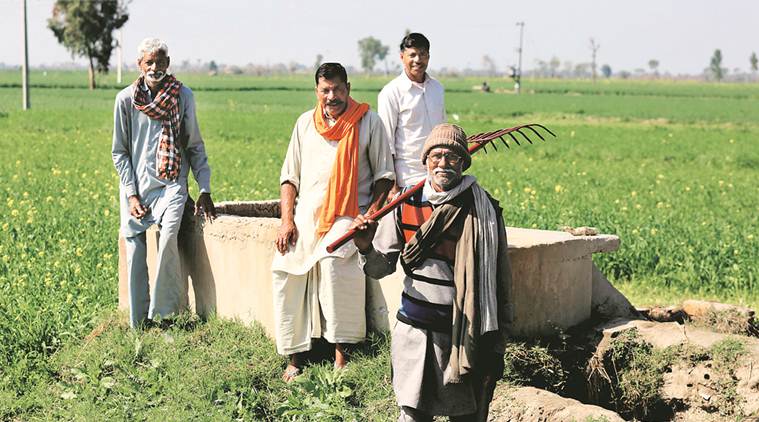With India-Pakistan tensions running high since a Jaish-e-Mohammad suicide bomber killed 40 CRPF personnel in Pulwama, the whole village of Mohar Jamsher — the last on the India-Pak border in Fazilka, Punjab — has been on high alert.

Since the Pulwama terror attack on February 14, Makhan Singh hasn’t had a full night’s sleep. His eyes and ears are fixed across the border and even his son’s wedding solemnised three days ago, didn’t weaken his vigil.
He is not the only one. With India-Pakistan tensions running high since a Jaish-e-Mohammad suicide bomber killed 40 CRPF personnel in Pulwama, the whole village of Mohar Jamsher — the last on the India-Pak border in Fazilka, Punjab — has been on high alert.
Watch | What is Jaish-e-Mohammed, the terror group that attacked the CRPF convoy
And with good reason. For, every time there is disquiet on the border, they pay a price. The last was in October 2016, after the surgical strikes, when they were asked to leave their homes and moved to a safe location.
Also Read | Across the aisle: Grief, anger but no wisdom

Surrounded by Pakistan on three sides and the Sutlej river on the fourth, Mohar Jamsher’s 1,500 residents have two choices to enter Punjab — row across the river or cross a high-security bridge. There is a BSF post at the entrance of the village, where every visitor is questioned before being allowed in.s sabre rattling between India and Pakistan intensifies, the destruction caused by the wars of 1965 and 1971 is still fresh in the minds of locals and over the last few days, the movement across the border has been of immense interest to all in Mohar Jamsher. On Saturday, women in the village were seen storing leftover dry rations while most men discussed Pakistan.
Sitting in his house, which is the closest to the barb wire fenced border, Makhan Singh is always tuned in to the loudspeaker on the other side. “That yellow building visible from our fields is their mosque and the green one is the Pakistan check post. These days, we are extra careful. We listen to the loudspeaker carefully to determine if it is azan or some other message after we heard of Pakistan Prime Minister Imran Khan’s threatening message.”
The brothers say even though there were two weddings in the village on February 20 and 21, people were busy discussing the possibility of war. And only a few houses are pucca, most are temporary. “We live on the border and have left our homes four times in the past. You never know when we will be asked to do the same yet again, so no one invests much money on houses,” said Hansa Singh.
Hansa was a teenager when the 1971 war broke out. “Our entire family shifted to relief camps except me and my father as we had to take care of cattle. I remember hearing a loud noise. I thought it was a cracker but soon the Army came and told us `Jung shuru ho gayi hai (war has begun).”
Next to Mohar Jamsher is Mohar Kheewa, from where the border and Pakistan check posts are seen even more clearly. Khushaal Singh (76) said, “Although all seems to be well, looking at TV debates and social media posts, it seems the whole country is ready for war. The Pulwama attack cannot be forgotten but we still have harsh memories of the 1965, 1971 and Kargil war with Pakistan when we had to flee and start life from scratch, each time after a gap of 18 to 24 months.”
According to Kushaal, in 1971, 28 villages of Fazilka were overrun by Pakistan including Mohar Kheewa. Then, they were given Rs 500 per acre per year as compensation for about two years. “When we got our villages back after about 18 months there were landmines in the fields. They were taken out by the Army but it was difficult to farm after such a gap. It was the same story in 1965 and 1999. War leads to destruction and nothing else,” he said.
Also Read | Inside Track: Pulwama and after
Gurdas Singh, in his late sixties of Mohar Jamsher village, has a word of caution. “Going by history, Pakistan attacked us first always. This is an age of nuclear weapons. So, damage to India will be more. Pakistan is far behind us. I wish there could be a solution without war.”
Advertising
All farming is done under strict BSF security between 10 am and 4 pm. He said: “We do see Pakistanis also farming on the other side. Our side is more green than theirs. At times some try to talk to us and wave saying `Sat Sri Akal’ but we never respond. In the 1960s people used to talk to each other freely. Times have changed. We don’t exchange a word now for we don’t want to be mistaken for a spy.”
